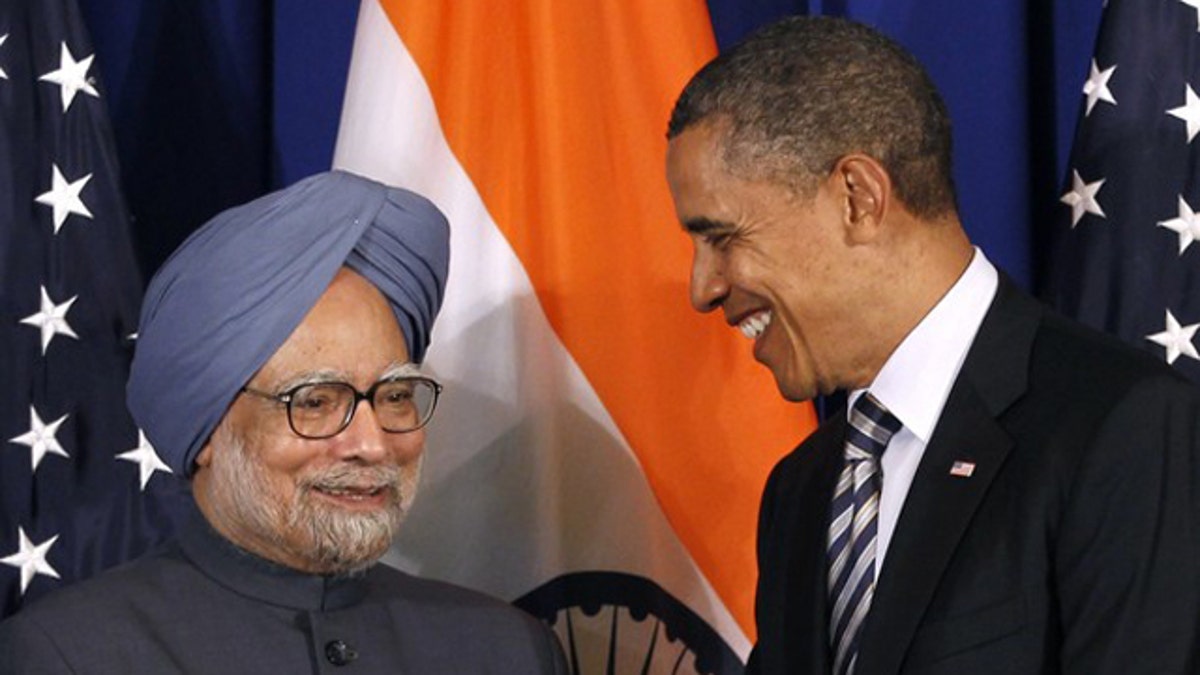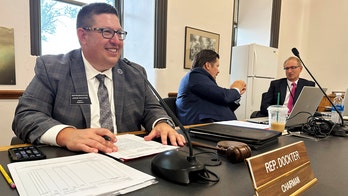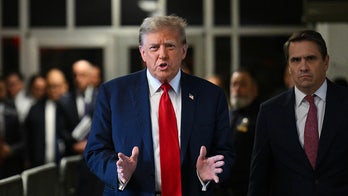
Nov. 18, 2011: President Obama meets with Indian Prime Minister Manmohan Singh on the sidelines of the ASEAN Summit in Nusa Dua, Bali. (Reuters)
The U.S. could be compelled to sanction one of its closest Asian allies -- India -- unless the country makes significant progress by summer on cutting back on Iranian oil.
Under sanctions approved by Congress late last year, the United States is supposed to penalize any country that does business through Iran's central bank, which processes much of the country's oil transactions. Countries would be specifically penalized for oil purchases if they do not make a serious effort to curtail those Iranian imports.
Where exactly India stands in that effort is unclear. Earlier this year, Indian's finance minister said "it is not possible" to drastically reduce Iranian oil imports and that they're too vital to India's developing economy. Secretary of State Hillary Clinton, though, testified last month that India and other countries are doing more to comply "than perhaps their public statements might lead you to believe."
India technically is in the same boat as any other country when it comes to the U.S. sanctions. Come June, any country not in compliance could see their financial accounts in the U.S. shut down.
But India, the world's largest democracy, received additional attention this past week following a Bloomberg report that quoted unnamed officials saying India so far has not cut back on Iranian oil purchases -- and could be sanctioned.
Because of the country's fondness for Iranian oil, it is one of the most vulnerable to sanctions among U.S. allies.
According to data from the Energy Information Administration, the country is the third-biggest importer of Iranian crude oil -- averaging 328,000 barrels a day as of early 2011. China is the biggest importer, followed by Japan, another U.S. ally. South Korea and Turkey are also top importers.
A Treasury Department official told FoxNews.com on Friday that the administration is in the process of "talking to all countries" engaged in trade with Iran.
"We are working with our partners to significantly reduce their imports of Iranian crude and to isolate the Central Bank of Iran so as to limit the risks it can pose to the international financial system," the official said. "High level delegations from the Departments of the Treasury, State and Energy have already been traveling across the globe to consult with their counterparts on these issues."
Clinton was asked about those efforts -- particularly concerning India, China and Turkey -- during a hearing before the Senate Foreign Relations Committee last month. The secretary said the administration has held "very intense and very blunt conversations" with them on the issue, and suggested they could all avoid sanctions.
"I think that there are a number of steps that we are pointing out to them that we believe they can and should make," Clinton said. "I also can tell you that in a number of cases, both on their government side and on their business side, they are taking actions that go further and deeper than perhaps their public statements might lead you to believe. And we're going to continue to keep an absolute foot on the pedal in terms of our accelerated, aggressive outreach to them."
Bloomberg reported earlier in the week that India, despite public statements, is looking to start reducing Iranian imports in April.
Japan and South Korea also reportedly are looking at ways to reduce their imports, and avoid the sanctions.
President Obama since taking office has aggressively tried to build ties with Asian allies, at a time when China is rising. The administration's relationship with India has been far more trouble-free than its alliance with India's chief adversary, Pakistan, and the administration surely wants to avoid slapping on sanctions if possible.
Not only is the U.S.-India relationship important in terms of global politics, the business relationship between the two nations is a critical one. Late last year, Maryland Gov. Martin O'Malley and dozens other officials went on a trade mission to India, resulting in millions of dollars in new contracts signed between the two countries. The Federation of Indian Chambers of Commerce and Industry also plans to open a joint center in Maryland, though the location has not yet been chosen.
Sanctions at this stage would be awkward, considering Obama tried to invigorate a new wave of U.S.-India relations when he visited the country in 2010.
In an implicit rebuke to China, Obama used that visit to back India's bid for a permanent seat on the U.N. Security Council.
Capital News Service's Varun Saxena contributed to this report.




